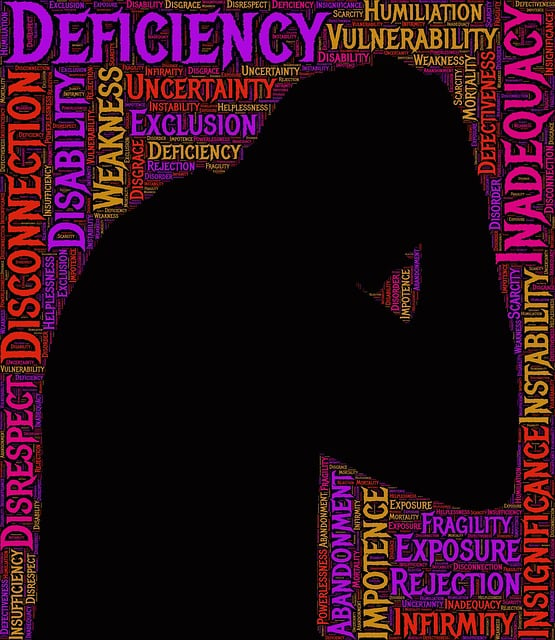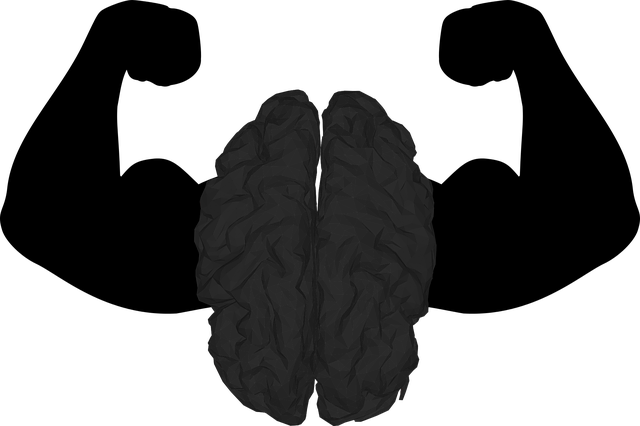Broomfield Divorce Therapy is revolutionizing mental health support with a comprehensive, holistic approach to diagnosis. By addressing medical history, social factors, emotional regulation, and implementing innovative training like Inner Strength Development and Social Skills Training, they enhance accuracy and personalize treatment. This method reduces stigma, enables earlier interventions, and improves patient outcomes, setting a new standard in the mental health landscape through their evidence-based practices and advocacy.
Mental illness diagnosis accuracy is a critical aspect of patient care, yet it remains a significant challenge. This article explores the intricate issues surrounding mental health assessments and delves into strategies to enhance diagnostic precision. We examine the impact of Broomfield Divorce Therapy, an innovative approach, on improving accuracy. Additionally, we highlight cutting-edge techniques and emphasize the importance of training and education in empowering healthcare professionals to make more reliable diagnoses, ultimately benefiting patients’ treatment outcomes.
- Understanding the Challenges of Mental Illness Diagnosis
- The Role of Broomfield Divorce Therapy in Enhancing Accuracy
- Innovative Approaches to Improve Diagnostic Techniques
- Training and Education: Empowering Professionals for Better Diagnosis
Understanding the Challenges of Mental Illness Diagnosis

Diagnosing mental illness accurately is a complex task due to its multifaceted nature and often subtle symptoms. Many conditions overlap in presentation, making differentiation challenging even for seasoned professionals. The intricate relationship between psychological and physiological aspects adds another layer of complexity. For instance, symptoms can vary greatly among individuals experiencing depression, anxiety, or post-traumatic stress disorder (PTSD), sometimes mimicking other conditions. This ambiguity necessitates a thorough understanding of each patient’s unique experiences and historical context.
Broomfield Divorce Therapy emphasizes the importance of a comprehensive approach to mental health assessment. This includes not only gathering detailed medical histories but also considering social, cultural, and environmental factors that might influence an individual’s psychological state. Additionally, the therapy centre advocates for emotional regulation skills training as a way to enhance individuals’ ability to cope with distressing symptoms and improve diagnostic accuracy. By addressing these challenges head-on, mental illness stigma reduction efforts can be more effective, paving the way for earlier interventions and improved patient outcomes. Furthermore, implementing risk assessment protocols for mental health professionals can mitigate potential risks associated with misdiagnosis or delayed treatment.
The Role of Broomfield Divorce Therapy in Enhancing Accuracy

Broomfield Divorce Therapy plays a pivotal role in enhancing mental illness diagnosis accuracy. By focusing on emotional regulation and providing a safe space for individuals to process complex feelings, this therapeutic approach helps reduce the impact of stigma associated with mental health issues. Through rigorous training and evidence-based practices, therapists equipped with Broomfield methods can more effectively assess and interpret symptoms, leading to more precise diagnoses.
Furthermore, addressing underlying emotional challenges often associated with mental illness, such as burnout prevention, allows for a comprehensive understanding of an individual’s state. This holistic approach ensures that diagnostic processes are not just fact-based but also considerate of the client’s unique experiences and lived realities. As mental illness stigma reduction efforts continue to gain momentum, Broomfield Divorce Therapy stands out as a powerful tool in promoting accurate diagnosis and personalized treatment plans.
Innovative Approaches to Improve Diagnostic Techniques

In the pursuit of enhancing mental illness diagnosis accuracy, innovative approaches are reshaping the landscape of Broomfield Divorce Therapy and beyond. Therapists and researchers are increasingly incorporating advanced techniques that move beyond traditional methods. One such method is leveraging Inner Strength Development strategies to foster resilience in individuals, enabling more nuanced understanding during diagnostic processes. By strengthening one’s inner resources, patients can better articulate their experiences, leading to improved communication with healthcare providers.
Additionally, Social Skills Training has emerged as a powerful tool for refining diagnostic techniques. This training focuses on enhancing interpersonal interactions and emotional regulation, which are often crucial in accurately assessing mental health conditions. As these innovative practices gain traction, they contribute to a more holistic understanding of mental illness, complementing existing efforts such as Mental Health Policy Analysis and Advocacy. This comprehensive approach ensures that diagnosis methods evolve alongside advancements in mental health awareness and support systems.
Training and Education: Empowering Professionals for Better Diagnosis

Mental illness diagnosis accuracy is significantly enhanced through comprehensive training and education initiatives aimed at empowering professionals. At Broomfield Divorce Therapy, for instance, therapists undergo rigorous programs that blend theoretical knowledge with practical skills, enabling them to navigate complex mental health landscapes with greater finesse. These educational efforts delve into the intricacies of various disorders, promoting a nuanced understanding that goes beyond surface-level symptoms.
By fostering a mindset centered around mind over matter principles, professionals learn to consider the unique context and experiences that shape an individual’s mental wellness. This approach not only prevents burnout but also cultivates empathy and effective communication. As a result, therapists become more adept at listening to clients’ stories, interpreting subtle cues, and making accurate diagnoses, ultimately leading to tailored treatment plans that address the root causes of distress.
Mental illness diagnosis accuracy has long been a complex issue, but with innovative approaches like Broomfield Divorce Therapy, significant strides can be made. By combining traditional therapeutic methods with modern techniques and comprehensive training, professionals can navigate the intricate landscape of mental health more effectively. These efforts not only improve diagnosis but also ensure tailored treatments, ultimately fostering better outcomes for individuals navigating their mental health journeys.














